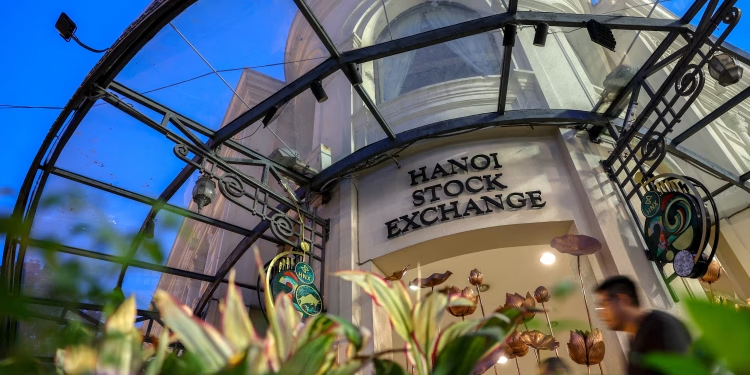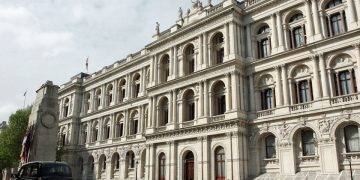United Nations Secretary-General António Guterres has renewed his global appeal for swift climate action, turning his focus to Southeast Asia — one of the regions most affected by rising seas, extreme weather, and biodiversity loss.
During his multi-country visit, Guterres urged governments, industries, and citizens to act fast. He called for deeper emission cuts, ecosystem protection, and an accelerated shift to clean energy. The world, he warned, is running out of time to prevent climate catastrophe.
A Regional Priority
Guterres’s trip included Indonesia, Vietnam, Thailand, and the Philippines — countries that face the direct effects of global warming. From Jakarta to Manila, he met leaders, scientists, youth activists, and business representatives. He reminded them that decisions made today will shape global climate stability for decades.
“The battle for climate stability will be won or lost in this decade,” Guterres said in Jakarta. “Southeast Asia is both a victim and a potential hero. It suffers from climate damage but also holds enormous renewable energy potential.”
Rising Seas and Threatened Cities
Southeast Asia is among the world’s most vulnerable regions. Studies show that cities like Jakarta, Bangkok, and Ho Chi Minh City are sinking. By 2050, they could face regular flooding if emissions continue unchecked. Millions of residents in low-lying areas risk losing homes, farmland, and livelihoods.
In Manila, Guterres visited coastal communities devastated by Typhoon Rai — one of the strongest storms to hit the Philippines in recent years. Survivors told him their stories, which he called “a wake-up call for humanity.”
“These disasters are not natural anymore,” he said. “They are fueled by human inaction. Every storm that wipes out a community is a reminder that fossil fuels are destroying our planet.”
The Global South’s Struggle
Guterres acknowledged the economic dilemma faced by developing nations in Southeast Asia. Many rely on coal and other fossil fuels for energy and exports. He urged richer nations to fulfill their $100 billion annual pledge to help poorer countries adapt and invest in clean energy.
“Countries in the Global South cannot move faster toward green transitions while burdened by debt and energy poverty,” he said in Hanoi. “Developed nations have a moral duty to support adaptation and technology transfer.”
Vietnam and Indonesia, both major coal consumers, have started Just Energy Transition Partnerships (JETPs) with the G7 to reduce coal use. Guterres praised the effort but said, “Pledges must turn into action.”
Energy Transition and Green Growth
Throughout the tour, Guterres highlighted that climate action also brings economic opportunity. Southeast Asia’s natural resources — sunlight, wind, and geothermal energy — give it a chance to lead the global renewable energy movement.
“Green energy is the best antidote to economic insecurity,” he told a Bangkok forum. “It creates jobs, cuts pollution, and strengthens national resilience.”
He also urged governments to end fossil fuel subsidies, calling them “investments in destruction.” Instead, he said, countries should fund sustainable infrastructure, reforestation, and climate-smart agriculture.
Youth and Civil Society Lead the Way
Guterres praised young activists for driving climate awareness across the region. In Indonesia and the Philippines, he met students leading coastal cleanups and tree-planting programs.
At a youth dialogue in Hanoi, he said: “Your generation has done more to awaken the world to climate reality than any summit or treaty. Keep speaking truth to power. You are the moral compass of this movement.”
He reminded leaders that public activism must be matched with policy action. “Young people shouldn’t need to protest for a livable planet,” he said. “Governments must secure that right through real action.”
Protecting Forests and Biodiversity
Guterres also stressed the importance of protecting Southeast Asia’s rich ecosystems. The region holds vast rainforests and coral reefs, including the Coral Triangle, which supports millions through fishing and tourism. But deforestation, overfishing, and pollution continue to threaten these resources.
In Kalimantan, Indonesia, he visited a peatland restoration project and called it “a symbol of hope.” Peatlands store massive amounts of carbon, and their protection is key to slowing global warming.
“Protecting forests is as important as cutting emissions,” he said. “Nature is our ally, not our enemy. We must stop destroying it.”
He called for stronger enforcement against illegal logging and wildlife trafficking, which still cross national borders unchecked.
Political and Policy Challenges
The visit came ahead of the next UN climate summit (COP), where countries must submit updated Nationally Determined Contributions (NDCs). Many Southeast Asian nations have pledged carbon neutrality by 2050 or 2060, but progress is slow due to limited funding and infrastructure.
In Jakarta, Guterres met ASEAN leaders and urged them to align policies with the Paris Agreement’s 1.5°C target. “If the world exceeds 1.5 degrees, the results will be catastrophic, especially for coastal Asia,” he warned.
Leaders reaffirmed their support for sustainable energy goals but called for more international cooperation and fairer climate financing.
A Global Message
Guterres’s Southeast Asia tour carried a wider warning. “Climate action is no longer optional — it’s an obligation,” he said. He stressed that the next few years will decide the fate of entire island and coastal nations.
“The world can’t afford half-measures,” he told reporters in Manila. “Every ton of carbon matters. Every forest saved and every solar panel installed makes a difference.”
He called for global unity and courage. “We have the knowledge, tools, and technology. What we lack is collective will. It’s time to turn promises into progress.”
Looking Forward
Analysts said Guterres’s visit underscored the urgency of climate action and Southeast Asia’s role in shaping global outcomes. If backed with strong financing and political will, the region could model sustainable growth for the rest of the developing world.
Before leaving, Guterres challenged both leaders and citizens to rise to the occasion. “The eyes of the world are on Southeast Asia,” he said. “How this region responds will either inspire billions or endanger them. Let us choose courage, hope, and a liveable future.”











